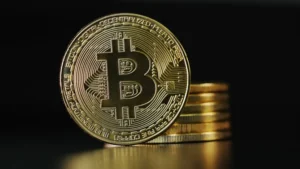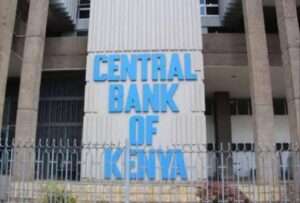
Bitcoin. Photo | Courtesy.
The International Monetary Fund (IMF) has urged Kenya to develop a framework to regulate and oversee the country’s crypto assets market in line with international standards in a bid to curb scams and counter terrorism financing.
In Kenya crypto users are operating below the radar of regulators since it is not recognized as a legal tender and it lacks a specific framework for crypto assets. Additionally, many scam reports have surfaced since the arrival of crypto currencies in the country where unsuspecting citizens have been scammed in dubious crypto investments schemes.
To curb these schemes, the Central Bank of Kenya (CBK) had issued a notice in 2015 that crypto assets or crypto currencies do not qualify as legal tender (money) in Kenya. This is because the use of crypto currencies like Bitcoin as money goes against CBK’s exclusive role of issuing currencies.
The notice also ordered banks (regulated by CBK) and other financial institutions which are supervised by the CBK not to facilitate any activities related to crypto assets.
ALSO READ: National Assembly Passes Bill to License All Crypto Firms
However this circular by CBK has not been effective since crypto currency activities are still available in Kenya, orchestrated by shadowy crypto agents, most of which operate through peer-to-peer trading.
Such transactions are negotiated on platforms like Telegram and WhatsApp and the actual transaction done via international crypto platforms like Bimance. This is possible because there are no laws or regulations aimed at controlling crypto assets and currencies.
In a technical assistance report prepared by IMF from a request from the Capital Markets Authority (CMA), IMF recommended that Kenya should “adopt international best practices” to enhance effectiveness of the regulatory approach.
The report found that the crypto assets market is likely to be bigger than what it is currently perceived to be.
“The use of the crypto assets market could be more widespread than indicated by the available market analysis and surveys,” the report reads.
Given the fact that crypto service providers are not licenced or registered in Kenya, it has proven impossible for users to differentiate between crypto scammers and legitimate crypto service providers,
“The lack of registration or licensing for crypto assets service providers further aggravates the difficulty for users to distinguish between legitimate and illegitimate providers,” the report reads.
The IMF report recommended that regulation of crypto framework should align with international frameworks and standards IMF/World Bank Bali Fintech Agenda, the IMF Policy Paper on Elements of Effective Policies for Crypto Assets among others.
Contrary to the de facto ban on crypto currencies by CBK, the IMF emphasized on the need to develop the sector in a transparent way by enabling supervision by authorities, because the lack of regulation stifles development and innovation in the sector.
“The informal structure of Kenya’s crypto assets market significantly inhibits the development of domestic market in line with international best practices in terms of market integrity and consumer protection,” reads the report.
It also highlighted the importance of consumer protection through increased financial literacy, so that citizens can be able to spot scams and stay away from them.
Lastly, it recommended calibration of regulations and framework to fit the current and expected risks emanating from crypto market activity and international cooperation across relevant authorities to enable effective oversight of the entire crypto assets markets.







